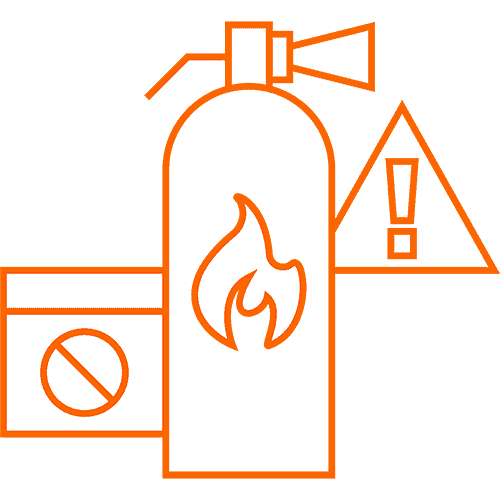
The Different Types of Heavy Duty Oil Filters

The Different Types of Heavy Duty Oil Filters
Reading time: 5 min 30 sec
Oil plays a key role in heavy equipment engines, providing lubrication between moving parts and dissipating heat. When engine oil becomes contaminated by metal shavings or contaminants such as silica, the engine can start to deteriorate leading to breakdowns and reduced performance.
To maintain the purity of the engine oil, modern heavy equipment engines are outfitted with oil filters. These vital components catch contaminants, like sand or metal shavings, and remove them from the oil.
By keeping the engine oil clean and free of harmful contaminants, oil filters can boost the longevity of your machine’s engine. Therefore, properly maintaining your machine’s oil filters is a critical aspect of heavy equipment maintenance.
In this guide, we’ll review the different types of heavy-duty oil filters used in construction equipment. Understanding the role of various filter types, and how to properly maintain them, will help you reduce equipment downtime and limit unnecessary maintenance costs.
The Location of Oil Filters in Construction Equipment
The exact location of your machine’s oil filter will vary according to its make and model. Typically, the oil filter is located in the service bay, which is near the engine block or oil pump.
Here are some common locations for the oil filter, according to equipment type:
- Skid Steers: Located near the engine block, often accessible from the rear or side panels for easy maintenance.
- Bulldozers: Typically found on the side of the engine compartment, designed for straightforward access.
- Front Loaders: Positioned close to the engine, usually accessible from the top or side of the engine bay.
- Excavators: Often found within the engine compartment, accessible through service panels on the side or top.
- Cranes: Located near the engine, generally accessible from the side or below, depending on the crane's design.
- Backhoe Loaders: Placed near the engine, accessible from the rear or side, allowing for straightforward replacement.
Types of Oil Filters Used in Construction Equipment
There are several common types of oil filters (also called lube filters) used in construction equipment. Each filter type has unique advantages, and each type has particular maintenance requirements.
Spin-On Filter
This type of filter looks like a metal can with a threaded bottom plate for easy installation. It incorporates the filter media and housing in a single unit. The spin-on filter is particularly effective in environments where quick and easy filter changes are necessary.
In dusty or dirty construction sites, spin-on filters are advantageous due to their ease of replacement. They are ideal for heavy-duty applications where frequent filter changes are required due to a high level of contaminants present in the work environment.
Cartridge Filter
Unlike the spin-on type, the cartridge filter consists of only the filter media, which is housed in a reusable container typically located within the engine compartment. This design is more environmentally friendly as it reduces waste.
Cartridge filters are well-suited for conditions that demand specific filtration requirements. Different types of filter media can be used according to the types of contaminants found in the work environment.
Magnetic Oil Filter
This filter uses a magnetic component to attract and remove metallic particles from the oil. It's often used in conjunction with other filter types for enhanced filtration.
In environments with high levels of metallic debris, such as sites with significant metal wear, magnetic oil filters are essential for prolonging engine life by removing damaging metal particles.
Centrifugal Oil Filter
This filter uses centrifugal force to separate contaminants from the oil. It consists of a rotating component within a housing that flings particles to the sides, separating them from the oil.
In high-performance and high-speed environments, centrifugal oil filters are ideal due to their ability to handle large volumes of oil and efficiently remove finer contaminants. They are particularly suitable for large engines that operate under strenuous conditions.
The Specific Roles of Oil Filters in Various Equipment Types
Specific oil filters are designed to meet the demands of each heavy equipment type.
For earthmoving equipment like bulldozers and excavators, which often operate in highly dusty, sandy environments, oil filters must provide superior filtration capabilities to prevent abrasive particles from damaging engine components. In these cases, heavy-duty filters with high dirt-holding capacities are essential.
Conversely, equipment like cranes and forklifts, which may not be exposed to such harsh conditions but often require precise and reliable operation, need oil filters that ensure consistent oil cleanliness.
For road construction equipment such as rollers and pavers, the oil filters need to cope with high-temperature conditions and varying load demands. This requires filters that can withstand thermal stress and fluctuating operational pressures, ensuring continuous protection and optimal engine performance.
Maintenance of Oil Filters
The maintenance schedule for oil filters in heavy construction equipment varies significantly depending on the type of machine and the specific oil filter used. Typically, manufacturers provide a recommended maintenance schedule, usually based on periodic intervals such as every 250, 500 or 1,000 hours of operation. Service interval kits can help you stay on track with your machine’s filter replacement schedule.
For instance, earthmoving equipment like excavators and bulldozers, operating in highly dusty environments, may require more frequent filter changes compared to cranes or forklifts. Similarly, the type of filter impacts the schedule. Spin-on filters might need more regular replacements than cartridge filters due to their design and capacity.
Here are some general maintenance tips for achieving optimal filter performance:
Regular Inspections:
Conduct regular visual inspections of oil filters to catch any signs of damage or leaks.
Monitor Pressure:
Keep an eye on the oil pressure indicators. A significant pressure drop can signal a clogged filter.
Adhere to Specifications:
Always use filters that meet or exceed the OEM specifications for your specific equipment, as given in its service manual.
Record Keeping:
Maintain a log of filter changes and inspections to track filter performance and anticipate future maintenance needs.
An oil filter that is clogged or starting to fail may cause symptoms like reduced engine performance, increased fuel consumption, and irregular oil pressure. You might also notice unusual sounds coming from the engine or the oil pressure warning light activating, indicating impeded oil flow.
Final Thoughts
In conclusion, the health and efficiency of your equipment hinge significantly on the performance of oil filters. These vital components ensure the smooth operation of machinery, protecting engines from contaminants and prolonging their lifespan.
The EquipmentShare Shop offers a comprehensive range of OEM and aftermarket oil filters, along with other types of filters. Whether you're looking for a specific brand or a cost-effective alternative, our selection caters to all your equipment's filtration needs. Don’t see the particular filter your machine needs? Reach out to our parts experts and get personalized assistance.
Back to Parts In Depth
Are you signed up for our newsletter?
We'll send you a monthly email covering everything from specialty parts to machine overviews, packed with tons of knowledge from our industry pros and no filler.
SIGN UP →


 Accessories
Accessories
 Attachments
Attachments
 Cab and Cover
Cab and Cover
 Chassis
Chassis
 Electrical
Electrical
 Engine
Engine
 Filters
Filters
 Fuel and Hydraulics
Fuel and Hydraulics
 Hardware
Hardware
 Kits
Kits
 Pins and Bushings
Pins and Bushings
 Platform
Platform
 Rings and Seals
Rings and Seals
 Tools
Tools
 Undercarriage
Undercarriage
 Gloves
Gloves
 Hard Hats
Hard Hats
 Hearing Protection
Hearing Protection
 Hi-Vis Vests
Hi-Vis Vests
 Masks
Masks
 Safety Glasses
Safety Glasses
 Cables
Cables
 Ramps
Ramps
 Plugs
Plugs
 Help Manuals
Help Manuals
 Machine Manuals
Machine Manuals